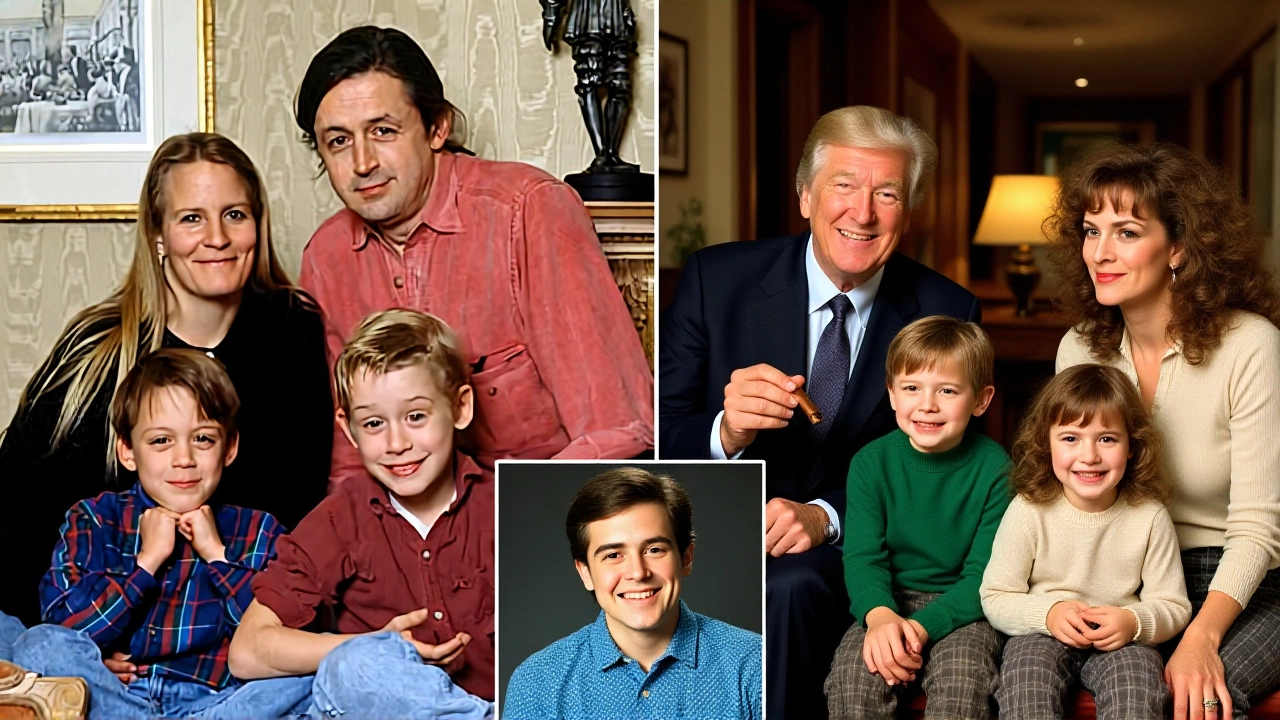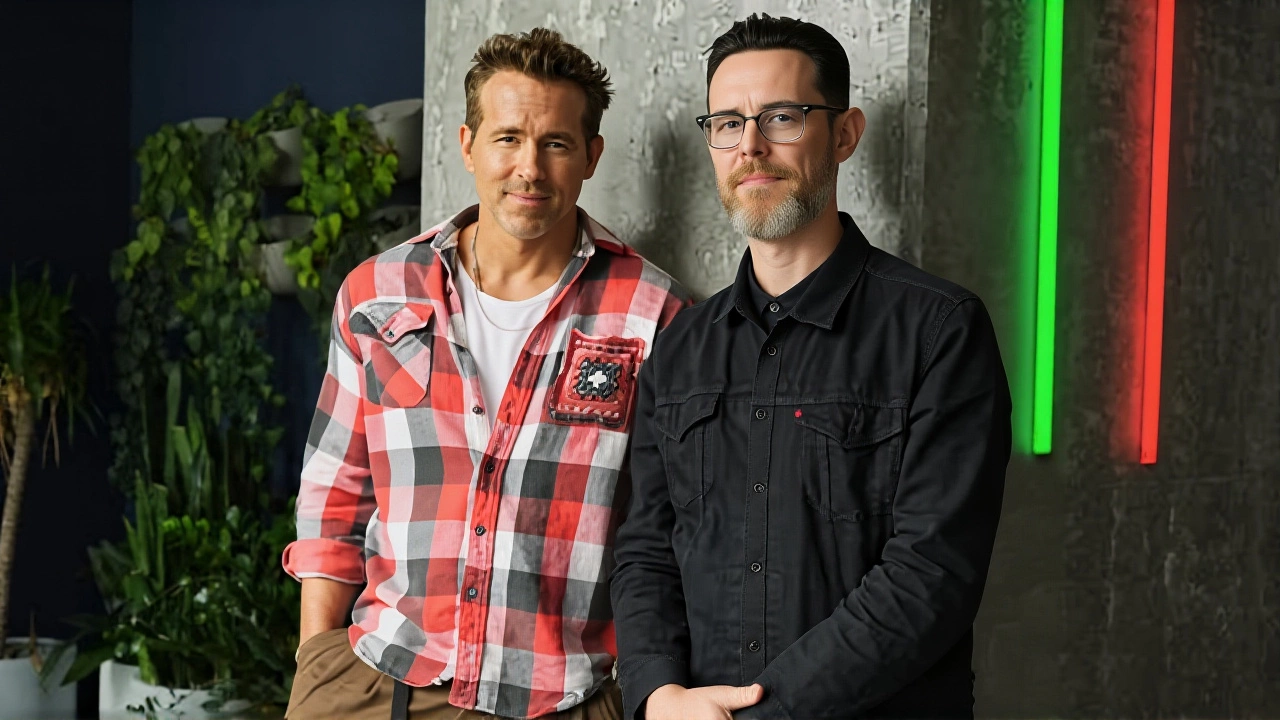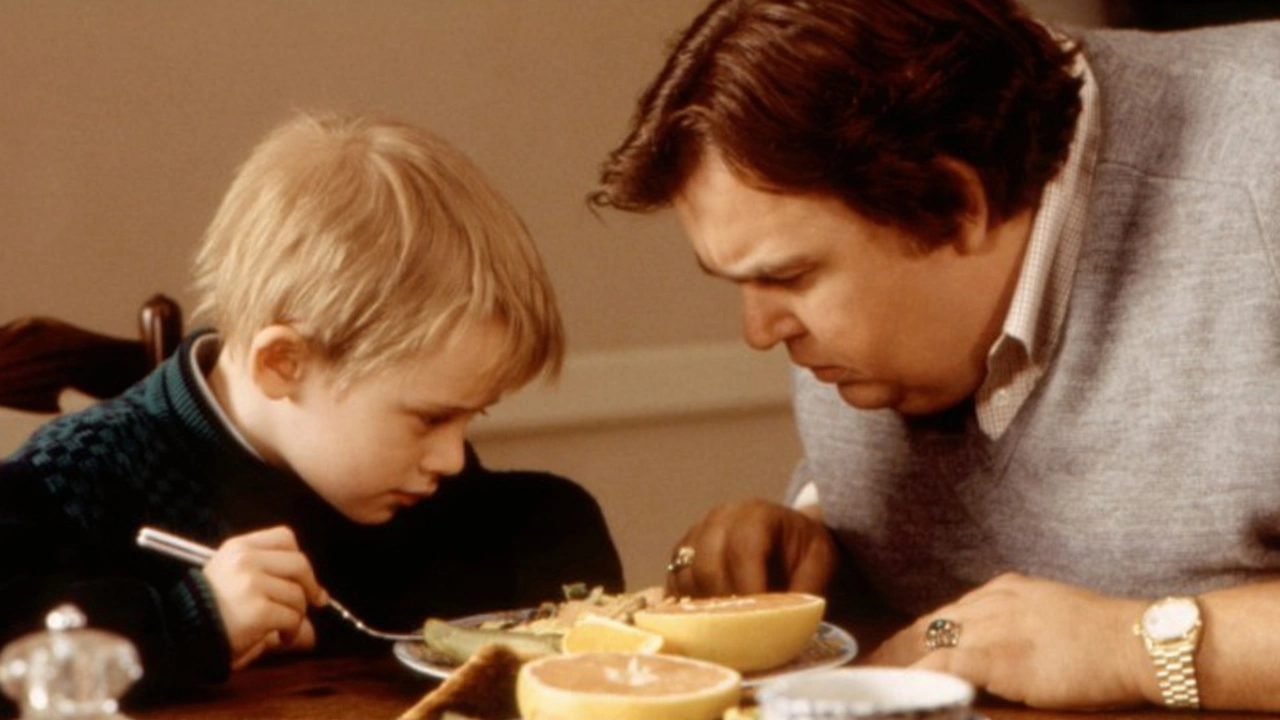When Macaulay Culkin was nine years old, filming Uncle Buck in 1989, he didn’t have a choice about who controlled his life — but he did have John Candy watching his back. In newly revealed interviews from the documentary John Candy: I Like Me, which premiered at the Toronto International Film Festival in September 2025, Culkin described how Candy, the beloved Canadian actor, recognized the danger lurking in his own home — and stepped in, quietly, before anyone else did. "I think he always had that really great instinct," Culkin told reporters, echoing words first reported by Entertainment Weekly. "I think he saw. Listen, even before the wave crested and the Home Alone stuff was happening, it was not hard to see how difficult my father was. It was no secret. He was already a monster."
Before Fame, There Was Fear
Culkin’s rise to global stardom with Home Alone in 1990 is etched into pop culture history — $476 million worldwide, the highest-grossing comedy of all time at that point. But what few remember is the chaos that preceded it. In 1989, during the filming of Uncle Buck, directed by John Hughes and produced by Hughes Entertainment in Chicago, Culkin was already enduring emotional and financial manipulation from his father, Kit Culkin. The fame hadn’t hit yet. The money hadn’t poured in. But the abuse had. And Candy, a man known for his warmth on screen, noticed it off-camera. Culkin didn’t need to explain. Candy just… knew. "He was among the first to notice," Culkin said. And in an industry where child actors are often shielded by handlers, not adults who care, Candy became an unexpected guardian. He’d pull Culkin aside during breaks. He’d make sure the boy ate. He’d deflect his father’s demands with humor, or silence. "He didn’t confront him," Culkin added. "He just… made sure I was okay."A Quiet Hero in a Hollywood Machine
John Candy, born in Newmarket, Ontario, was never one for grand gestures. His comedy was physical, his presence comforting — a big guy with a gentle soul. That’s why his actions on the Uncle Buck set resonate so deeply now. While Hughes was crafting one of his most iconic family comedies, Candy was quietly holding together the emotional foundation of the film’s youngest star. He didn’t tell the press. He didn’t write a memoir. He just showed up. The documentary John Candy: I Like Me, directed by Colin Hanks and executive produced by Ryan Reynolds through Maximum Effort Productions, draws on archival footage and candid interviews with Candy’s colleagues. Steve Martin, who co-starred with Candy in Planes, Trains and Automobiles, recalls how Candy always "had a sixth sense about people who needed help." And Culkin’s testimony confirms it: Candy saw through the Hollywood facade. "It wasn’t about money then," Culkin said. "It was about survival. And he was the only one who acted like he cared."The Aftermath: A Legacy of Silence and Survival
Candy died in 1994, just as Culkin’s legal battle with his father was hitting headlines. The boy who once hid behind Candy’s laughter was now a teenager fighting in court to regain control of his earnings — a fight that would define his adult life. Had Candy lived, would he have testified? Would he have spoken out? We’ll never know. But Culkin’s words now serve as a quiet eulogy. The documentary doesn’t just honor Candy’s comedic genius. It reveals the moral courage of a man who chose kindness over silence — even when no one was watching.
Why This Matters Now
Culkin’s revelations aren’t just nostalgia. They’re a window into how child stars were — and often still are — exploited. The entertainment industry has changed, but the power imbalance remains. Candy’s instinct, his quiet protection, stands as a model for what adult responsibility should look like. And Culkin, now in his 40s, isn’t just telling his story — he’s demanding we remember who showed up when it mattered.What’s Next for the Documentary
Following its TIFF premiere, John Candy: I Like Me is expected to hit streaming platforms and limited theaters by late 2025, with an official release date to be announced by Hanks’ team and Maximum Effort Productions. The film’s emotional core — Culkin’s account — has already drawn interest from educators and child advocacy groups, who see it as a tool to spark conversations about child welfare in entertainment.
Background: The Untold Story of 'Uncle Buck'
Uncle Buck was released on August 16, 1989, through Universal Pictures. It was Hughes’ third film of the year, following She’s Having a Baby and Planes, Trains and Automobiles. The film was shot in Chicago and surrounding suburbs, with Culkin’s character, Miles Russell, serving as the emotional anchor. Behind the scenes, though, the set was tense. Culkin’s father, Kit, reportedly controlled schedules, demanded changes to scripts, and pressured producers to increase his son’s compensation — long before the film even opened. Candy, who was 39 at the time, reportedly refused to let Kit attend rehearsals. He’d take Culkin to lunch after scenes. He’d make sure the boy got to bed early. And when the cameras stopped rolling, he’d say things like, "You’re doing great, kid. Don’t let anyone tell you otherwise."Frequently Asked Questions
How did John Candy know something was wrong with Macaulay Culkin’s father?
Candy had spent years working with child actors and noticed subtle signs: Culkin’s hesitation to speak around adults, his reluctance to leave the set, his emotional withdrawal after interactions with his father. These weren’t outbursts — they were quiet red flags. Candy, who came from a large, close-knit Canadian family, recognized emotional manipulation when he saw it. He didn’t need proof — he just needed to protect.
Was Macaulay Culkin’s father ever held accountable for his behavior?
Yes — but only after years of legal battles. In 1994, a California court stripped Kit Culkin of control over his son’s earnings, ordering the return of over $15 million in child actor income. The ruling cited financial exploitation and emotional abuse. Still, Kit Culkin never faced criminal charges. Macaulay later described the process as "a battle you never stop fighting."
Why is this documentary significant beyond John Candy’s legacy?
It’s one of the first times a major Hollywood figure has publicly confirmed the systemic abuse of child actors before they became famous. Candy’s actions — subtle, consistent, and uncelebrated — challenge the myth that stars are protected by their fame. In reality, many are vulnerable until someone with power chooses to intervene. This film turns Candy’s quiet heroism into a blueprint for ethical mentorship.
Did Macaulay Culkin have any contact with John Candy after 'Uncle Buck'?
They stayed in loose contact. Culkin visited Candy’s home in Toronto in 1992, shortly before Candy’s death. He later said Candy asked him, "Are you still okay?" — not about money, fame, or movies, but about his well-being. Candy died in March 1994. Culkin was 14. He didn’t attend the funeral. He says he couldn’t face it — not until now.
